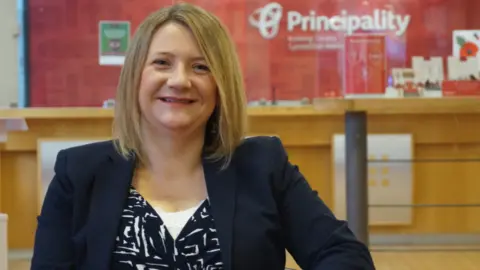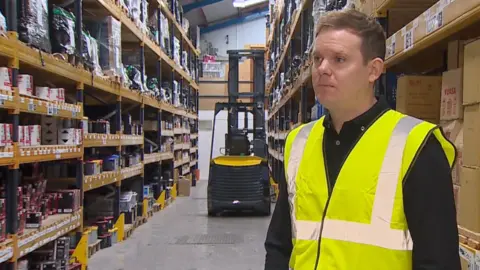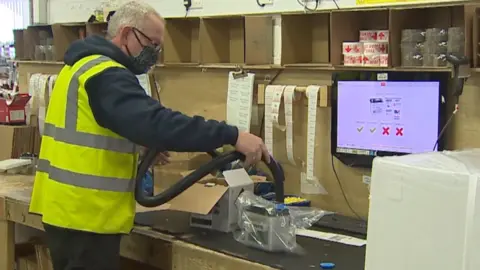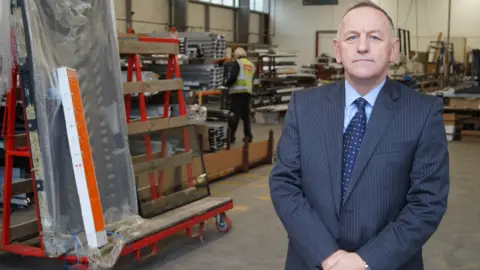Covid and Brexit: Businesses facing 'curveballs'
 BBC
BBCThe UK government does not "fully comprehend how difficult it is for businesses to plan" for Brexit, the boss of Wales' largest building society has said.
Principality CEO Julie-Ann Haines said firms were "being thrown a huge number of curveballs day in, day out".
The deadline to agree a new UK-EU deal is approaching as the Brexit transition period ends on 31 December.
The UK government said "significant preparations" were being made.
Ms Haines said "the twist and turns of Brexit and clearly the global pandemic mean that businesses are really trying to focus on surviving not thriving", adding that Westminster needs to support firms with investment.
She expects to see some knock-on effects for "consumers, business and indeed the wider economy" given the ongoing lack of clarity and the impending deadline.
This meant businesses were "thinking about the impact" of Brexit on supply chains, but with the pandemic on top of that, "for many, at the moment, this is about survival".
She also anticipates unemployment continuing to rise into 2021 and the UK's economic performance falling back significantly.

While the pandemic has been devastating for many parts of the economy, online car battery retailer Tayna Batteries, based in Abergele, Conwy county, enjoyed rocketing sales as more people chose internet shopping.
Director Sam Taylor said sales increased by 100% in March at the beginning of the UK-wide lockdown, compared with the same period in 2019, and were "still riding at about 50% above the previous year".
The business, which employs 80 staff and has a turnover of £15m, took on eight new starters in the summer and has just bought an additional warehouse at Bodelwyddan in Denbighshire.
"We're looking to take on at least another 50 staff in the next two to three years," he said.
With the end of the Brexit transition period approaching they are "planning for the worst, but hoping for the best".
"Until we get any clear guidance from the government on whether there is going to be a deal or not, we're limited in what we can do."

The company currently imports from countries which have trade deals with the European Union - Turkey and Vietnam. He said if there was no trade deal in place with these two countries from 1 January, it would cost the firm more to bring goods into the UK.
"We've got some large stock orders coming in December to try to alleviate any problems that may occur with delays at the port or any extra tariffs we may incur.
"The best for us would be to have a deal in place where there would be no extra documentation or any handling incurred just to keep the flow across the border nice and smooth and as charge-free as possible."
'Leave with a deal'

Alan Brayley, president of the Swansea Bay Business Club and owner of AB Glass Doors and Windows, said he was "positive" about the future for businesses in the area, having continued manufacturing throughout 2020.
He is in favour of Brexit, but thinks because of time lost to the pandemic, the UK should ask the EU for an extension of the transition period for another 12-24 months to get businesses prepared.
His firm imports materials from the EU and he said he would "rather leave with a deal [rather] than just no deal at all because that's going to be an uncertain future".
He said businesses have been focusing on keeping going through the pandemic, "but now Brexit is creeping up quite fast we need to start shifting that focus".
"It's been extremely difficult for businesses to prepare."
A UK government spokesman said "significant preparations" for "guaranteed changes" at the end of the transition period included a £705m investment in infrastructure, staffing and technology at the border.
"With fewer than 50 days to go, it's vital that businesses also take steps to prepare now for the changes ahead," he added.
"That's why we're intensifying our engagement with businesses and running a major public information campaign so they know exactly what they need to do to hit the ground running in the new year."
